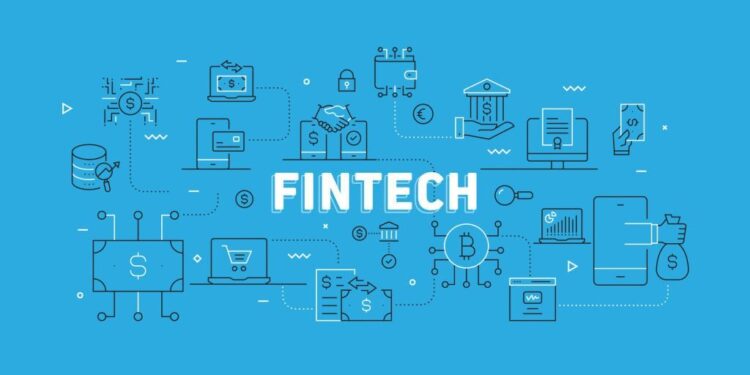The world of finance is changing rapidly, and technology is driving the change. With the rise of fintech software development, traditional financial services are being transformed into digital, user-friendly solutions that are accessible to anyone with an internet connection. In this article, we will explore what fintech is, how it works, and why it’s the future of financial services.
Introduction: What is Fintech?
Fintech is short for financial technology, and it refers to any technology that is used to support or enhance financial services. Fintech software development can involve anything from mobile banking apps to investment management platforms to cryptocurrency exchanges. Fintech is a broad term that encompasses a wide range of technologies and services, but they all have one thing in common: they aim to make financial services faster, easier, and more convenient for users.
How Fintech Works
Fintech software development typically involves building digital platforms that automate or streamline financial processes. For example, a fintech company might create a mobile app that allows users to check their bank account balance, transfer money, and pay bills all in one place. The app might use artificial intelligence to categorize transactions and offer personalized financial advice based on a user’s spending habits.
Fintech companies like selleo.com may also use blockchain technology to create secure, transparent systems for transferring money or managing assets. For example, a blockchain-based platform could allow investors to buy and sell shares of a company without the need for a middleman like a stockbroker.
Why Fintech is the Future of Financial Services
Fintech software development is changing the way we think about financial services. Here are just a few reasons why fintech is the future of finance:
1. Accessibility
Fintech software development makes financial services more accessible to people who may have been excluded from traditional banking systems. For example, mobile banking apps can allow people without access to a bank branch to manage their money from anywhere in the world. Cryptocurrencies can be used to send and receive money across borders without the need for a traditional bank account.
2. Efficiency
Fintech software development can streamline financial processes, making them faster and more efficient. For example, an automated investment platform can manage a portfolio of stocks and bonds without the need for a human advisor. This can save investors time and money while still offering personalized investment advice.
3. Innovation
Fintech software development is constantly pushing the boundaries of what is possible in finance. New technologies like blockchain and artificial intelligence are being used to create new financial products and services that were not possible just a few years ago.
4. Security
Fintech software development can make financial services more secure by using advanced encryption and other security measures. For example, a blockchain-based platform can create a secure, tamper-proof ledger of all transactions, reducing the risk of fraud or hacking.
Challenges Facing Fintech Software Development
While fintech software development has many benefits, there are also challenges that must be overcome. Here are a few of the challenges facing fintech companies today:
1. Regulation
Fintech companies are often subject to a complex web of regulations that can vary from country to country. Navigating these regulations can be difficult and expensive.
2. Cybersecurity
Fintech companies are a prime target for cybercriminals due to the sensitive financial information they handle. Keeping customer data safe is a top priority for fintech companies, but it can be a never-ending battle against increasingly sophisticated attacks.
3. Customer Trust
Fintech companies must earn the trust of their customers, who may be hesitant to use new financial services.
Overcoming Challenges in Fintech Software Development
Despite the challenges facing fintech software development, many companies are finding ways to overcome them. Here are a few strategies that are being used to build successful fintech companies:
1. Collaboration
Collaboration between fintech companies and traditional financial institutions can be mutually beneficial. Fintech companies can benefit from the expertise and regulatory compliance of established financial institutions, while those institutions can benefit from the innovation and agility of fintech companies.
2. Education
Educating customers about the benefits and risks of fintech services is essential for building trust. Fintech companies can provide educational resources like blogs, tutorials, and webinars to help customers understand how their services work.
3. Security Measures
Fintech companies must take security seriously and implement measures like encryption, two-factor authentication, and regular security audits to keep customer data safe.
4. Regulation Compliance
Fintech companies must stay up to date with the regulations in their target markets and be prepared to comply with them. This can require significant investment in legal and regulatory expertise.
Future Trends in Fintech Software Development
As fintech software development continues to evolve, new trends are emerging that will shape the future of financial services. Here are a few of the most significant trends to watch:
1. Artificial Intelligence
Artificial intelligence (AI) is already being used in fintech software development to automate tasks like fraud detection and risk assessment. In the future, AI could be used to create more personalized financial products and services that are tailored to individual users’ needs.
2. Blockchain
Blockchain technology is already being used in cryptocurrency exchanges and other fintech applications. In the future, it could be used to create more secure and transparent systems for managing assets and transferring money.
3. Open Banking
Open banking is a trend that allows customers to share their financial data with third-party providers. This can make it easier to switch between financial services and create more personalized financial products.
4. Digital Currencies
Digital currencies like Bitcoin and Ethereum are already being used for payments and investments. In the future, they could become more widely accepted and even replace traditional currencies in some cases.
Conclusion: The Future of Finance
Fintech software development is transforming the financial services industry in exciting ways. By leveraging the latest technologies and innovative approaches, fintech companies are making financial services more accessible, efficient, and secure than ever before. While there are challenges to overcome, the potential benefits of fintech are too great to ignore. The future of finance is digital, and fintech is leading the way.
FAQs
1. What is fintech software development?
Fintech software development refers to the use of technology to support or enhance financial services.
2. What are some examples of fintech services?
Some examples of fintech services include mobile banking apps, investment management platforms, and cryptocurrency exchanges.
3. What are the benefits of fintech software development?
Fintech software development can make financial services more accessible, efficient, and secure.
4. What are the challenges facing fintech companies?
Fintech companies face challenges such as complex regulations, cybersecurity threats, and building customer trust.
5. What are some future trends in fintech software development?
Future trends in fintech software development include artificial intelligence, blockchain, open banking, and digital currencies.



